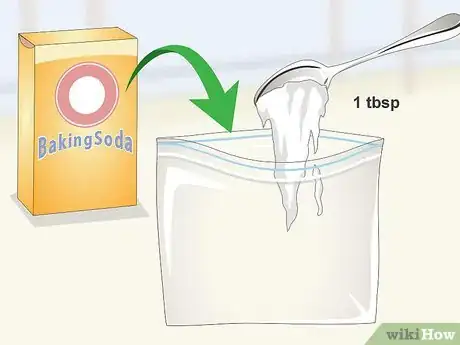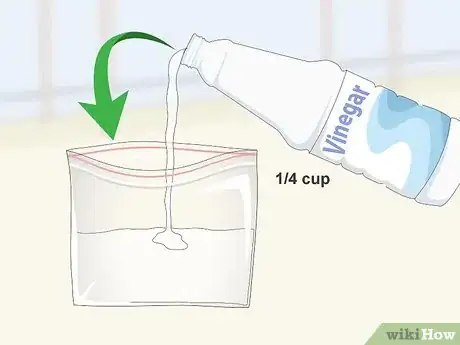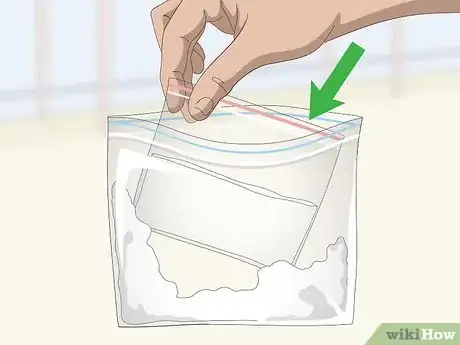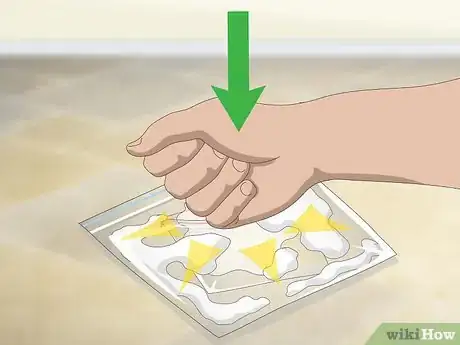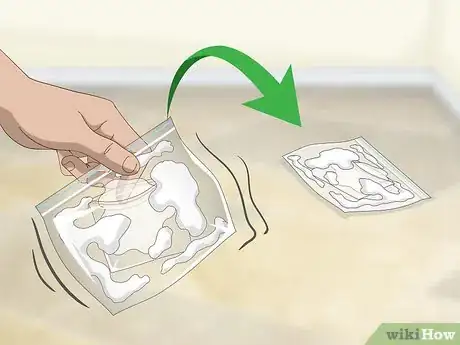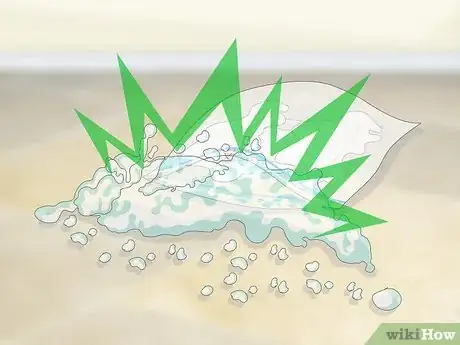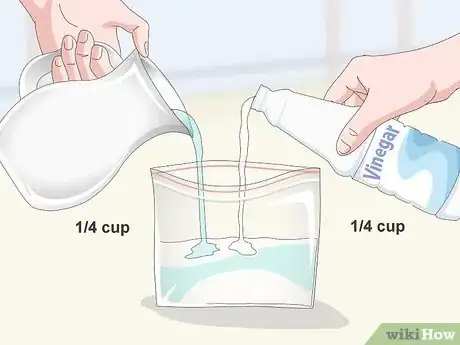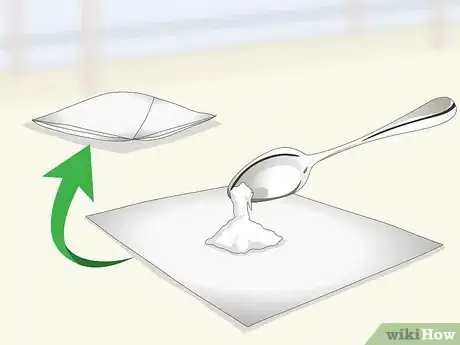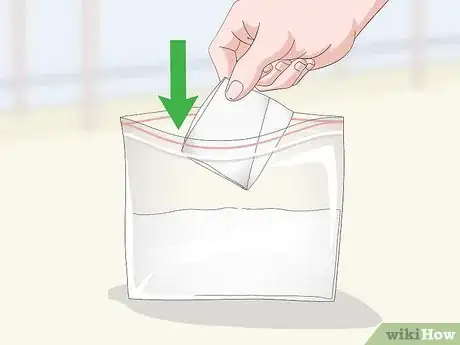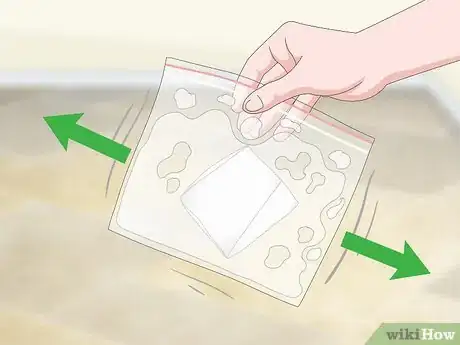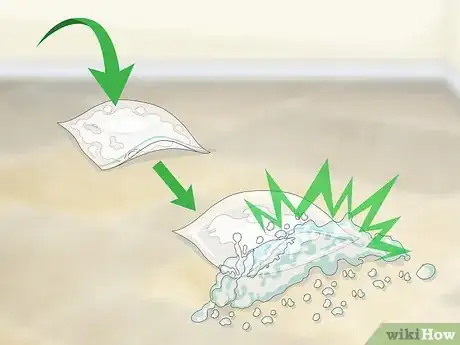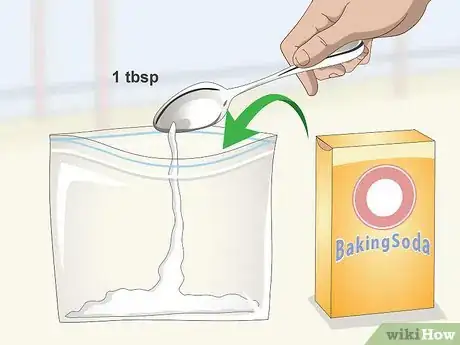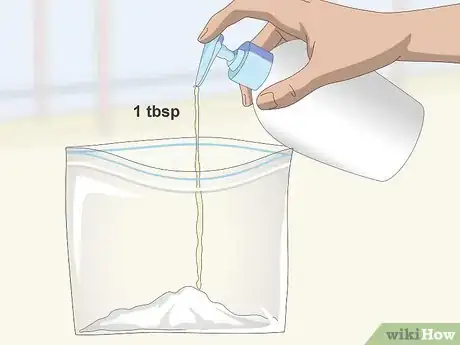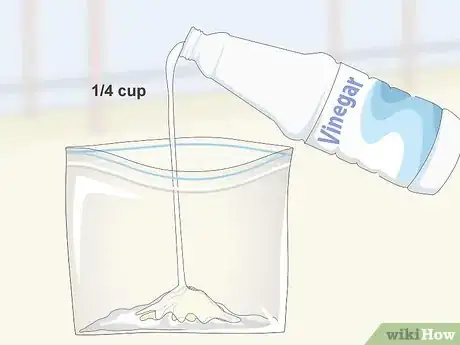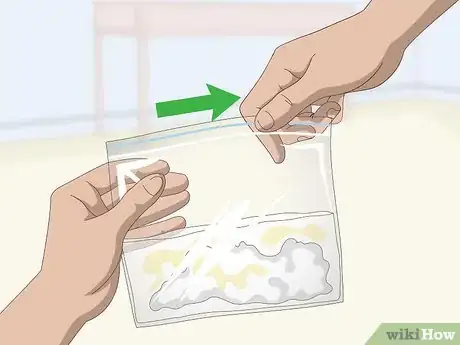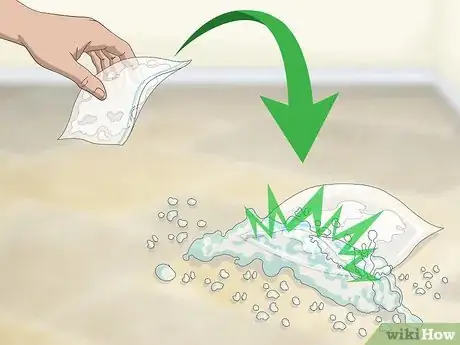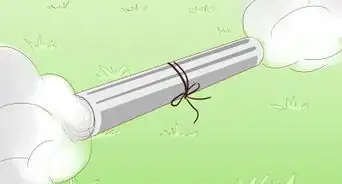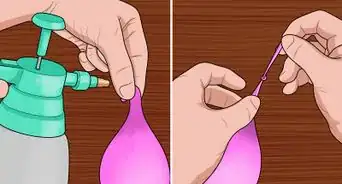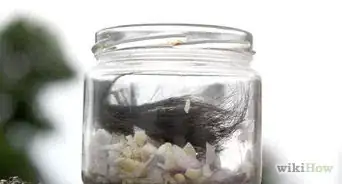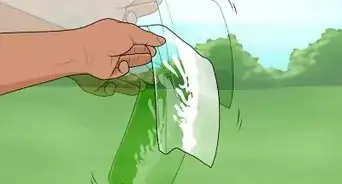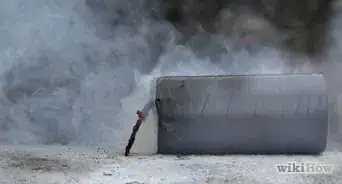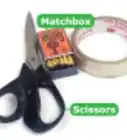This article was co-authored by wikiHow Staff. Our trained team of editors and researchers validate articles for accuracy and comprehensiveness. wikiHow's Content Management Team carefully monitors the work from our editorial staff to ensure that each article is backed by trusted research and meets our high quality standards.
This article has been viewed 137,374 times.
Learn more...
Making a bomb bag is a fun and safe experiment for kids of all ages. A bomb bag is essentially a Ziploc or sealable bag in which you add warm water, vinegar, and a small amount of baking soda. After adding the ingredients, you seal the bag and wait for the pressure to build and the bag to explode. There are many experiments involving baking soda and vinegar, but making a bomb bag is an especially satisfying experiment because you get to see the bag slowly expand and then explode with a loud pop! Making a bomb bag is quite easy, but there are several different materials and methods you can use to create the bag and ensure that the vinegar and baking soda react at the optimal rate for the best explosion.
Steps
Making a Two-Bag Bomb Bag
-
1Add a tablespoon (14.78 ml) of baking soda to a sandwich bag. A two-bag bomb bag is a quick and basic way to make an effective bomb bag. To begin, place one tablespoon (14.78 ml) of baking soda in a Ziploc sandwich bag or a similar small, completely sealable bag.
-
2Add ¼ cup (59.14 ml) of vinegar to a snack bag. After adding the baking soda to the larger sandwich bag, pour ¼ cup (59.14 ml) of vinegar to a smaller sealable bag like a snack size Ziploc bag. Then seal the zip on the bag completely.
- Make sure that the snack size bag in which you put the vinegar is smaller than the bag that you put the baking soda in.
- Leave a little bit of air inside the snack bag of vinegar, as opposed to pressing it before sealing and letting the air escape.
- You need to initially separate the vinegar and baking soda because they react almost instantly, which means that if you poured them in together, you wouldn't have time to seal the bag before the pressure builds. Adding them in separately ensures that the reaction in the bag will be able to build up to an explosion.
Advertisement -
3Place the snack bag inside the sandwich bag. Once you seal the snack bag, place the snack bag of vinegar inside the larger bag of baking soda. Seal the zip on the sandwich bag.
-
4Punch the snack bag to release the vinegar. Once you seal the larger bag, place the bag on a surface that is either outside or can be easily cleaned. Then hit or punch the snack bag inside the sandwich bag. Because you left some air inside the snack bag, the pressure of your punch should open up the seal of the bag slightly to let the vinegar escape into the larger sandwich bag.
- If punching the bag doesn't partially open the seal, use your fingers to try to pinch the sides of the snack bag of vinegar and pull the seal partially open without opening the larger sandwich bag.
-
5Jiggle the bag and toss it down. Once you have partially opened the seal of the snack bag of vinegar, give the bag a good shake to allow some of the vinegar to escape into the larger, sealed sandwich bag of baking soda. Once you have jiggled the bag and see the vinegar touch the baking soda, toss the bag down onto an easily cleanable surface.
-
6Watch the explosion. After shaking the bag, the vinegar will collide with the baking soda, and you should see the reaction start and the bag start to expand. When the bag has expanded to its fullest extent, it will explode with a loud pop!
Using the Satchel Method to Make a Bomb Bag
-
1Place warm water and vinegar inside a sealable bag. Another good way of making a bomb bag is to wrap baking soda inside paper towel and place it in a sandwich bag of vinegar. The baking soda gradually mixes with the vinegar, working in a similar way as using two bags, though easier to activate. To begin, place ¼ cup (59.14 ml) of vinegar and ¼ cup (59.14 ml) of warm water inside a snack sized bag.
-
2Make a satchel of baking soda. To make the small pack of baking soda, place one tablespoon (14.78 ml) of baking soda in the middle of a 6 by 6 inch (15.24 by 15.24 cm) square of paper towel. Then fold the sides of the paper towel in to make a sort of parcel that holds the baking soda.
- The satchel of baking soda doesn't have to be completely foolproof, but it should be able to sit without the sides folding down and the baking soda pouring out.
-
3Place the satchel of baking soda inside the sandwich bag. Once you make the parcel of baking soda, place it carefully inside the sandwich bag, making sure that no baking soda falls out of the satchel before you have time to seal the bag.
-
4Seal and shake the bag. After you place the satchel inside the sandwich bag, immediately seal the zip on the sandwich bag. Then give the bag a shake until you see the satchel coming undone and the baking soda pouring out.
-
5Toss down the bag and watch the explosion. Once you see that the satchel has unfolded and the baking soda is mixing with the vinegar, toss the bag down somewhere outside or on an easily cleanable surface. Watch the bag expand and then explode like a bomb.
Making a Bomb Bag With Detergent
-
1Add a tablespoon (14.78 ml) of baking soda to a sandwich bag. An easy way to make an effective bomb bag is to add detergent to the baking soda in the bomb bag, which acts as a retardant for the chemical reaction so that you have time to seal the bag before the baking soda and vinegar react. Begin making the bomb bag by adding ¼ cup (4.78 ml) of baking soda to a sealable sandwich bag.[1]
-
2Pour in a tablespoon (14.8 ml) of dish detergent. Once you have added the baking soda, add one tablespoon (14.78 ml) of dishwashing detergent into the sandwich bag. Shake the bag slightly to allow the detergent to combine with the baking soda.[2]
-
3Add ¼ cup (59.14 ml) of vinegar to the sandwich bag. After adding in the dishwashing detergent, pour in ¼ cup (59.14 ml) of vinegar into the sandwich bag of baking soda and detergent.[3]
-
4Seal the bag immediately. Once you add the vinegar, immediately zip the seal of the bag. Even though the detergent slows down the chemical reaction, it's still essential to zip the bag at once so that the pressure can build inside the bag.[4]
- Not closing the bag in time can cause a significantly smaller explosion or it can cause the fizzing reaction to happen before the closing of the bag, so that even when you close the bag it won't explode.
-
5Place the bag down and watch the explosion. Once you seal the bag, place or toss it down onto a easily cleanable surface. Then watch the pressure build and the bag explode![5]
Community Q&A
-
QuestionWill the bag burst on its own, or does it need to be popped by someone?
 Community AnswerIf you add the right ingredients and combine them according to the instructions, it should burst on its own, but you can pop it with a needle if it doesn't seem to be reacting quickly enough.
Community AnswerIf you add the right ingredients and combine them according to the instructions, it should burst on its own, but you can pop it with a needle if it doesn't seem to be reacting quickly enough.
Things You'll Need
- Sealable sandwich bag
- Sealable snack bag
- White vinegar
- Warm water
- Baking soda
- Dishwashing detergent
- Paper towels
